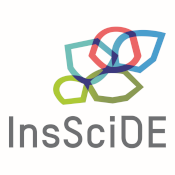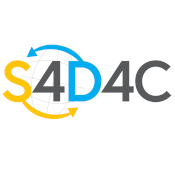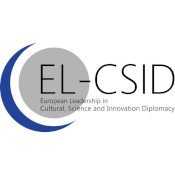The nucleus of the EU Science Diplomacy Alliance is based on partner organisations of three projects exploring the topic, funded under the European Union’s Horizon 2020 programme:



The projects and their respective research consortia focused on different aspects of science diplomacy and building bridges between the world of scientists and that of diplomats, with the goal of understanding and facilitating how global challenges can be addressed together and in a more efficient way. Based on their results, with the idea to structure and broaden the European networks that emerged from project activities, several parties committed themselves to further nurture the community of research and practice and build sustainable partnerships through the Alliance.

InsSciDE – Inventing a shared Science Diplomacy for Europe (grant n° 770523, 2017 – 2022)
InsSciDE explores the history of science diplomacy and offers a framework for understanding its diverse applications, related concepts and the underlying power dynamics. Research was conducted in interdisciplinary work packages focused on themes under the umbrella of ‘science diplomacy’ – Heritage, Health, Security, Environment and Space – as well as in cross-cutting work packages which highlight contributions of science academies and networks of science diplomats to addressing global challenges. The findings were consolidated into a rich archive of case studies, stakeholder-supported strategy and policy recommendations and a two-edition live training program that also informs future science diplomacy education.
InsSciDE was coordinated by Pascal Griset (Sorbonne University, CNRS) and the Executive Director Claire Mays (Symlog). The project’s 15 consortium partners comprised of institutions of higher education, international relations strategy and diplomatic training.
Contact: contact@insscide.eu

Using science for/in diplomacy for addressing global challenges (grant n° 770342, 2018 – 2021)
The overall objective of S4D4C is to support current and future European science diplomacy for the benefit of European capacities, EU foreign policy goals and especially the development of solutions for global challenges. S4D4C has shaped its partnership so that it can effectively address this objective from an academic as well as a practitioners‘ perspective. In S4D4C, we make use of case-based research to develop a governance framework for EU science diplomacy, training and capacity-building measures as well as online knowledge resources for science diplomats.
S4D4C was coordinated by Elke Dall (Centre for Social Innovation – ZSI, Austria) and consisted of ten participating institutions and several associated partners. Each organisation participated with unique expertise and networks in the project, including science diplomacy research and practice, EU foreign policy, EU science policy, sociology of science, diplomatic training.
Contact: contact@s4d4c.eu

EL-CSID – European Leadership in Cultural, Science and Innovation Diplomacy (grant n° 693799, 2016 – 2019)
EL-CSID aimed to codify and articulate the relevance of cultural, science and innovation diplomacy for EU external relations as part of a systematic and strategic approach. It examines the opportunities and benefits of successful cultural, science and innovation diplomacy, as well as provides a reality check, identifying the constraints and limits imposed by some at times too easily made, excessively optimistic and poorly implemented endeavours in these domains—particularly in the international projection of national cultures. Its results help identify how the Union and its member states might collectively and individually develop a good institutional and strategic policy environment for extra-regional culture and science diplomacy.
EL-CSID was coordinated by Luk Van Langenhove (Institute for European Studies (IES) at the Vrije Universiteit Brussel) and consisted of a consortium of nine partners from Belgium, Germany, Kazakhstan, Singapore, Slovenia, Turkey and the United Kingdom.
Contact: https://www.el-csid.eu/contact-us
